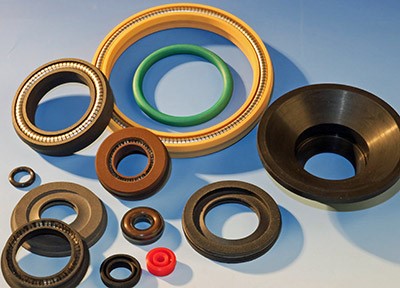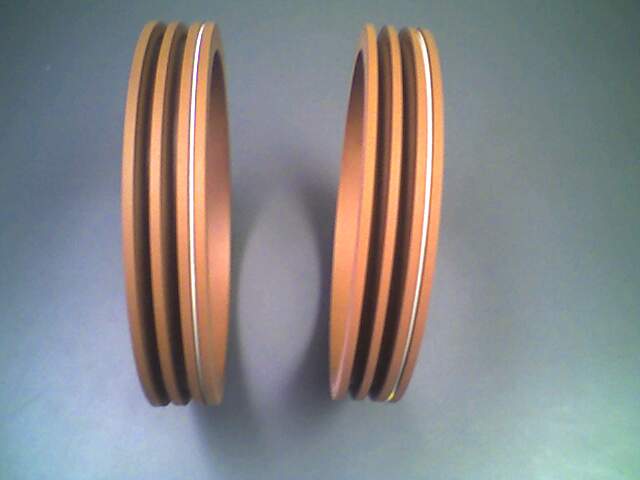
The Fallacy of You Get What You Pay for and Other Fallacies When Receiving Seal Design Services
The common statement of “you get what you pay for” generally means low price = low quality or high price = high quality. In regard to seal design, this statement is not only misleading, but can also lead to the opposite of the desired result. It is better to look at seal sourcing through the prism of “How can I get what I NEED?” Below are a few points to consider when selecting the best seal for your needs.

-
The same seal in the same material is identical.
Nothing could be further from the truth. Not only does the geometry make a huge difference, but also any generic seal material has many grades and this has a huge impact on performance. If it is a simple low speed gearbox seal under no pressure, and never replaced due to failure, then the likelihood is that most available lip seals will meet your needs. If the seal is used in a more challenging application, then the seal may or may not have the right geometry and material grade to meet your needs.
-
Are you always getting the same seal?
If you are an OEM, then this is a very important question. If you are dealing with a seal manufacturer, the answer is yes, almost all of the time. However, if you get your seals through a seal distributor or stockist, this is critical information. Many stockists concentrate on keeping seals in stock and sourcing in a cost-effective manner. This means, on occasion, they will change suppliers or even deliver a shipment of the same seal but from different manufacturers. If you have a seal issue, it might be impossible to ascertain which are the problem seals, where the problem seals have been fitted, and how many seals may have an issue.
-
Seal catalogues allow me to select the best seal.
This really depends on your seal experience and knowledge. Generally, when you look at a seal catalogue or page on a website, it will display a number of seals with identical operating ranges, and will encourage you to select the best one. Then you find that only one of the options is available in your size and you select that one. It is likely that the one currently in stock is stocked because it covers more applications than other seals and is, therefore, efficient to stock. What is efficient for the supplier to stock isn’t necessarily the seal that you NEED. If your needs are modest, then this approach is more than adequate. If your needs are more complex, then you should explain your needs to a seal engineer for a recommendation. The seal engineer should explain why the seal he selected is better than the others with similar operating parameters.
-
If I have a seal problem, I just switch to a more expensive material:
This is probably the most common error made in the use of seals. Materials that cost more have particular properties that are necessary in only some specific applications and require more expensive ingredients or special manufacturing processes. For the application for which they are designed, they do an admirable job; but as a general rule, they may also have some properties which are significantly poorer than more common seal materials. As a result, you may pay 3 to 4 times as much for the same seal in a more expensive material and get less service life out of it. Always speak to a seal engineer to help him understand your application and its needs. This will probably save you money in seal cost and expensive repairs or warranties.
-
Adding a safety factor to the temperature to ensure I am good.
This happens daily and is a dangerous way to ensure a well-designed, strongly performing seal. Adding 50ᵒF to a high temperature seals required operating range can lead to the elimination of the best material for the job. As a general statement, when a seal material’s temperature tolerance increases, at least one of the mechanical properties that make the seal work is compromised. This can lead to the requirement for auxiliary devices, and even then, poorer service life. On many occasions, this can lead to the seal costing three times as much as it should and result in half the service life.
-
I don’t need technical support?
If this is an existing application that has never had an issue, the answer maybe you are correct! If the seal is a critical part of your equipment, then technical support may be vital. If you have an equipment issue, the most important thing is to get to the root cause. Your seal manufacturer should be able to help you do this. They should be able to look at how the equipment operates, understand the issues, and help you to find a suitable solution. If the seal is not the root cause, the seal engineer should still be a useful resource to help diagnose and solve the issue. In my opinion, if the only answer you get is that there is nothing wrong with the seal, then even if they are correct, they have failed in their duty to give you technical support.
In summary, always look at what you need from your seal and its supplier first, and then look for a match. If your needs are modest, then a price-driven selection approach may be the correct one. If the seal is a critical item for you, then ensure you work with a seal manufacturer that can not only meet your needs but also explain how they will do so!
Need Help Selecting the Seal Design that is Right for Your Business?
Avoid the pitfall of the fallacies such as “you get what you pay for” and reach out to one of our Seal Engineers. Our Seal Engineers have the necessary experience to recommend the best seal design for any application. Call us at (800) 283-7140, or fill out our contact form on our Contact Us page.


